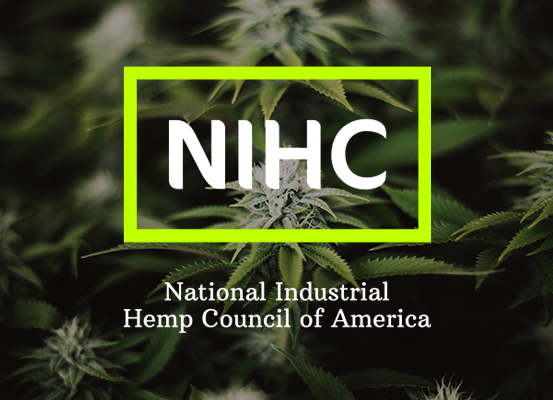The Regulatory Anvil Around Hemp’s Declining Market Value’s Neck
 By Beau R. Whitney, NIHC Chief Economist
By Beau R. Whitney, NIHC Chief Economist
 This year’s legislative cycle at the state level has seen a lot of legislation proposed or enacted to severely curtail the growth and development of the hemp industry. It appears that state legislators are genuinely trying to address aspects of the hemp industry that they perceive as public safety issue. These efforts are misguided attempts to drive clarity or create stop-gaps in policy that has been created due to the lack of structure and leadership at the federal level. States are looking to control a market at the state level that has already deployed nationally. These efforts have proven to have significant, yet seemingly unintended consequences on U.S. hemp.
This year’s legislative cycle at the state level has seen a lot of legislation proposed or enacted to severely curtail the growth and development of the hemp industry. It appears that state legislators are genuinely trying to address aspects of the hemp industry that they perceive as public safety issue. These efforts are misguided attempts to drive clarity or create stop-gaps in policy that has been created due to the lack of structure and leadership at the federal level. States are looking to control a market at the state level that has already deployed nationally. These efforts have proven to have significant, yet seemingly unintended consequences on U.S. hemp.
Multiple states are defining extracted and processed materials differently.
For example, California’s AB45 legislation appears on the surface to be an attempt to put the hemp genie back into the bottle and regulate it like higher THC marijuana. The law would likely limit nearly all extracted hemp CBD, with the exception being highly refined THC free Isolate. Combined with a proposed ban on smokable hemp, as well, it is looking more and more like the California hemp market would be virtually destroyed. Trying to carve out niches in the processing industry is creating a ripple effect in the $5.8 billion U.S. market, a market that has seen its value erode by $9.9 billion since October alone.
Figure 1: Total Market Value of U.S. CBD Licensed Processing Capacity
| Total Potential Capacity | Kg of Capacity | Total Value of Processing Capacity |
| Crude | 4,377,246 | $555,910,302 |
| Distillate | 12,820,139 | $3,525,538,176 |
| Isolate | 4,767,489 | $1,763,970,976 |
Similar bans or laws curtailing the market are being proposed across the country, from New York to Texas and in Oregon. In fact, by April, no fewer than 15 states had introduce legislation to restrict hemp processed products in some shape or form. These bills are common in the sense that they seem to try to provide clarity particularly around how products should be categorized or defined. However, it is through this definition process that the unintended consequences occur and this is impacting the national hemp industry even though it is derived from local legislation.
How states are negatively impacting the national hemp market.
The economic impact on the hemp industry comes from the lack of nationwide common definitions or common interpretation of what hemp and hemp derived products actually are. When there is a lack of clarity at the federal level and definitions are left up to interpretation by each state, there will inevitably be mismatches from state to state. This is similar to what occurred when there was a lack of definition of hemp under the 2014 Farm Bill versus the 2018 Farm Bill.
Different definitions impact interstate commerce.
Having different definitions in different states poses a serious threat to interstate commerce. We saw the effect in 2020 when a truck driver was arrested in Idaho for trying to transport legal hemp from Oregon to Colorado. Idaho laws made hemp illegal, even though it was permitted to be grown and processed nationally. This state versus federal commercial rub was eventually clarified, but problems in other areas remain.
The hemp industry needs federal leadership, quickly.
Much of this confusion can easily be cleared up with swift action at the federal level. Unfortunately, the federal government is not known for being this nimble. By clearly defining regulatory definitions and quickly deploying guidance at the federal level, the USDA, FDA and DEA can resolve this legal and regulatory ambiguity that the states are trying (unsuccessfully) to address. It can start by clarifying the definition of post-harvest, value-added products at being hemp derived and can also adopt the National Association of State Departments of Agriculture (NASDA) proposed definition of hemp raising total THC limits from 0.3% to 1.0%.
The hemp industry needs national standards.
In addition to clarifications at the federal level, the hemp industry needs to quickly agree to and adopt national standards for definitions, and testing so that the states do not have to attempt this exercise themselves. The National Industrial Hemp Council (NIHC) is working with others to develop and deploy these standards. These efforts will be a service to not only the industry but also to state and federal governments who are struggling right now to keep pace with the development of the U.S. hemp industry. Standards will also help build confidence in hemp and hemp derived products for individual consumers who have a right to know that the products they’re purchasing are tested and safe.
This and more will be discussed at NIHC’s 2021 Business Summit in Washington, DC on November 14-16. It would benefit you to be there.














